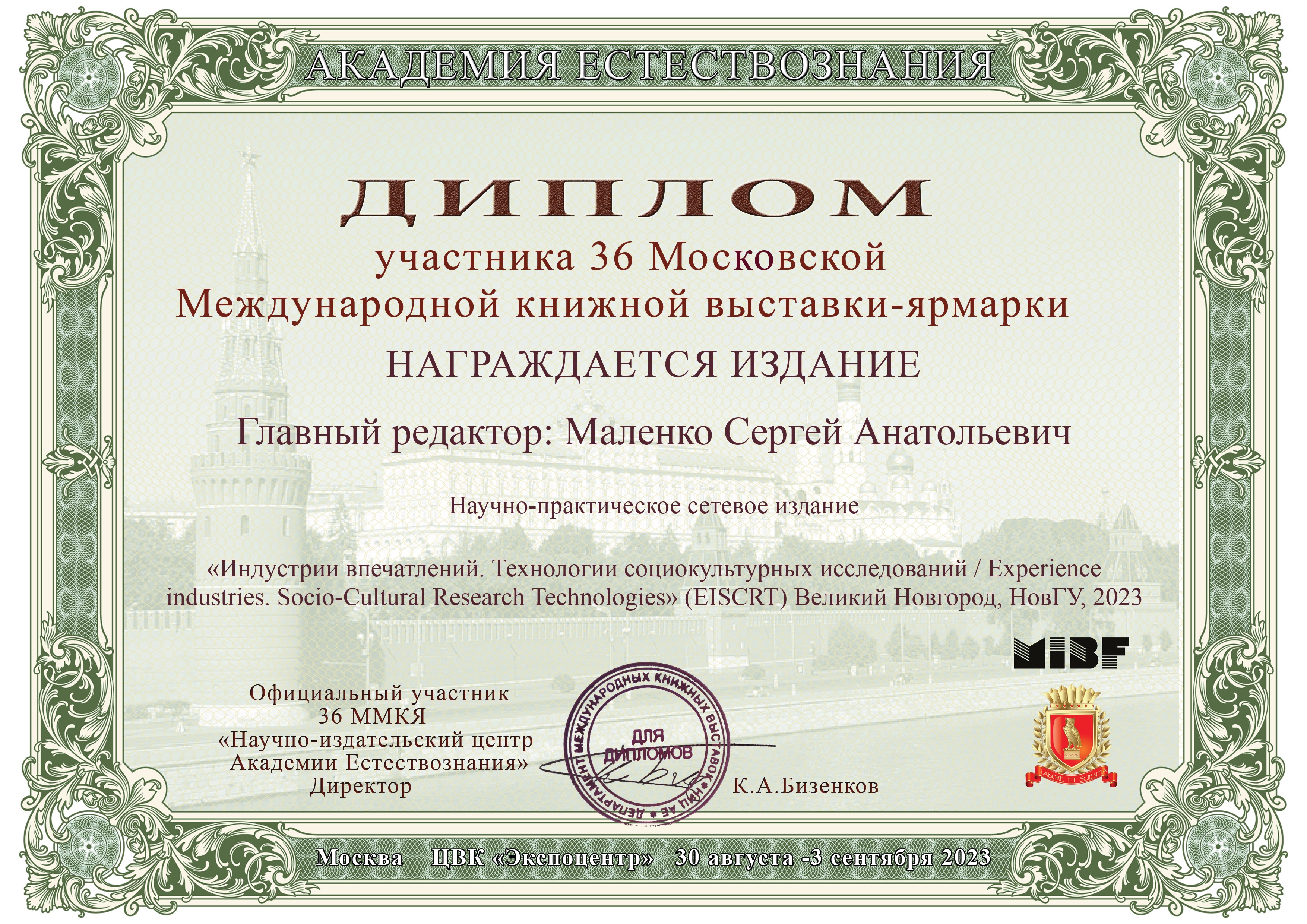GENERATIVE DESIGN AND CYBERNETIC ANTHROPOLOGY OF ARTIFICIAL INTELLIGENCE
DOI:
https://doi.org/10.34680/EISCRT-2024-4(9)-284-304Keywords:
generative design, designer, cybernetic anthropology, artificial intelligence, synthetic people, distributed man, digital law, digital environment, convergenceAbstract
The convergence of generative design practices with cybernetic anthropology of artificial intelligence is explored. A transformation of the main forms of design activity took place as part of the convergence. One of the aspects was the topic of modernizing design methodology, considering the preservation of its core professional competencies and the subject ontology of creative activity. Another aspect of consideration is focused in the article on the development of cybernetic anthropology of artificial intelligence, the product of which was synthetic people. Their main function is communication. It was formed by the practice of using chatbots and digital assistants in the functions of administrators and consultants. A new direction in the cybernetic anthropology of artificial intelligence has become the formation of generative functions in computer programs through deep machine learning. This technological trend raises questions about employment prospects and copyright and related rights to creative works.
For citation:
Loiko, А. (2024). Generative Design and Cybernetic Anthropology of Artificial Intelligence. Experience industries. Socio-Cultural Research Technologies (EISCRT), 4 (9), 284-304. https://doi.org/10.34680/EISCRT-2024-4(9)-284-304








